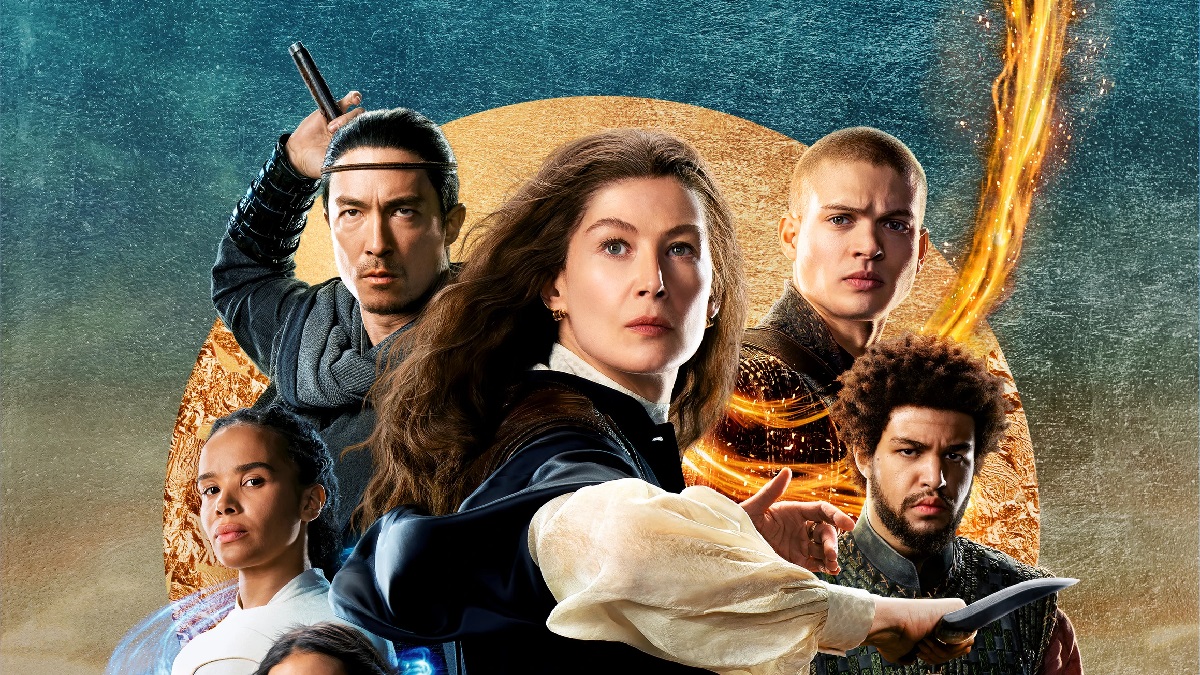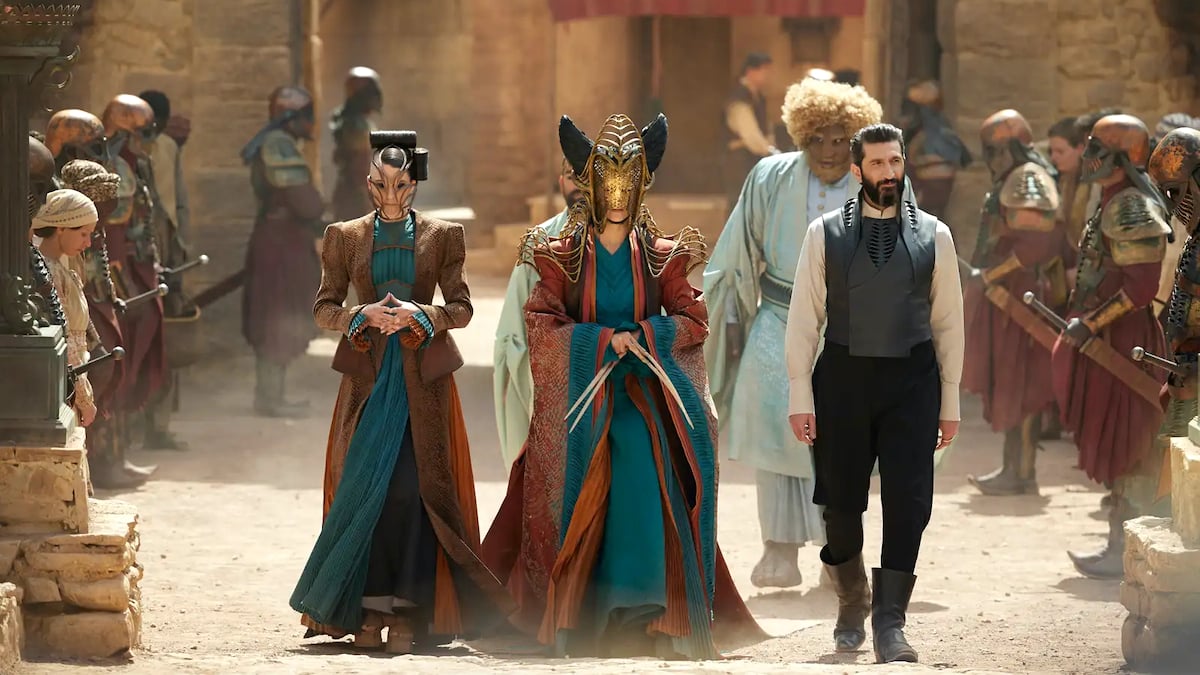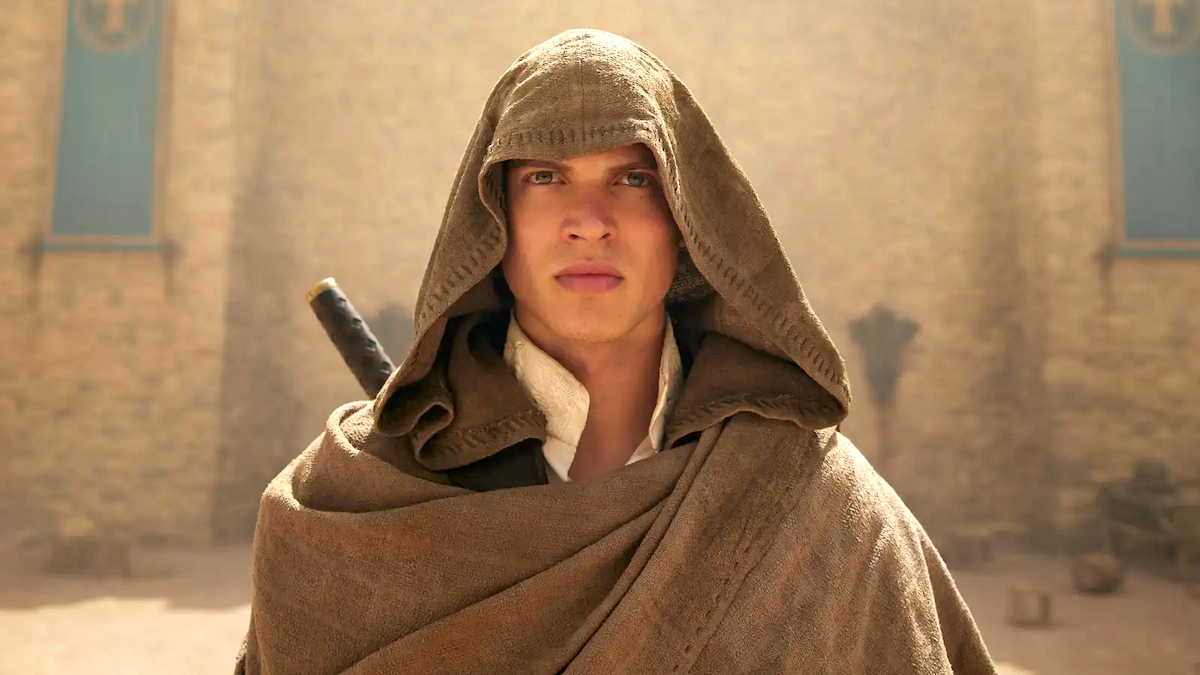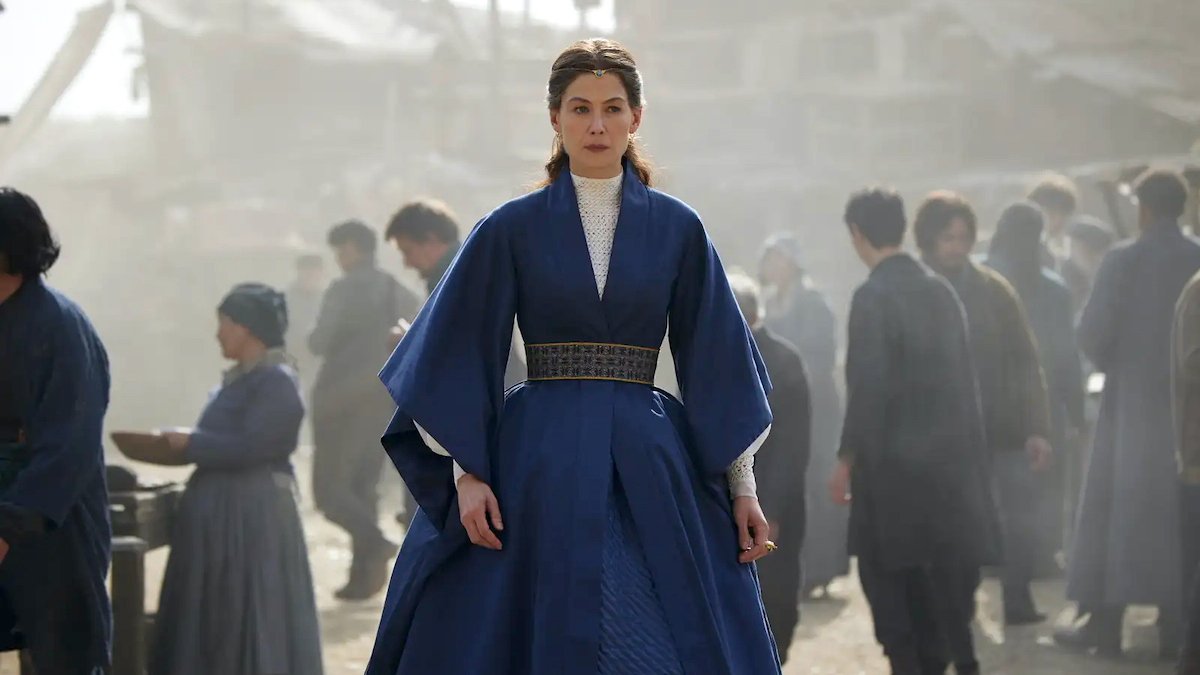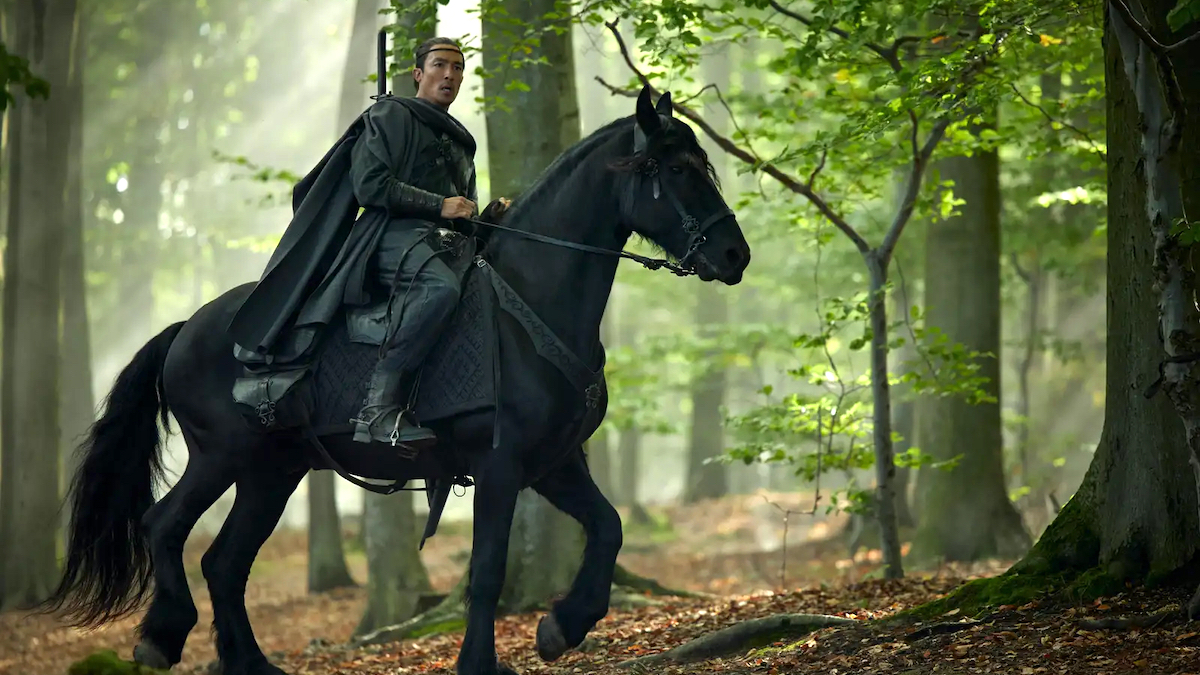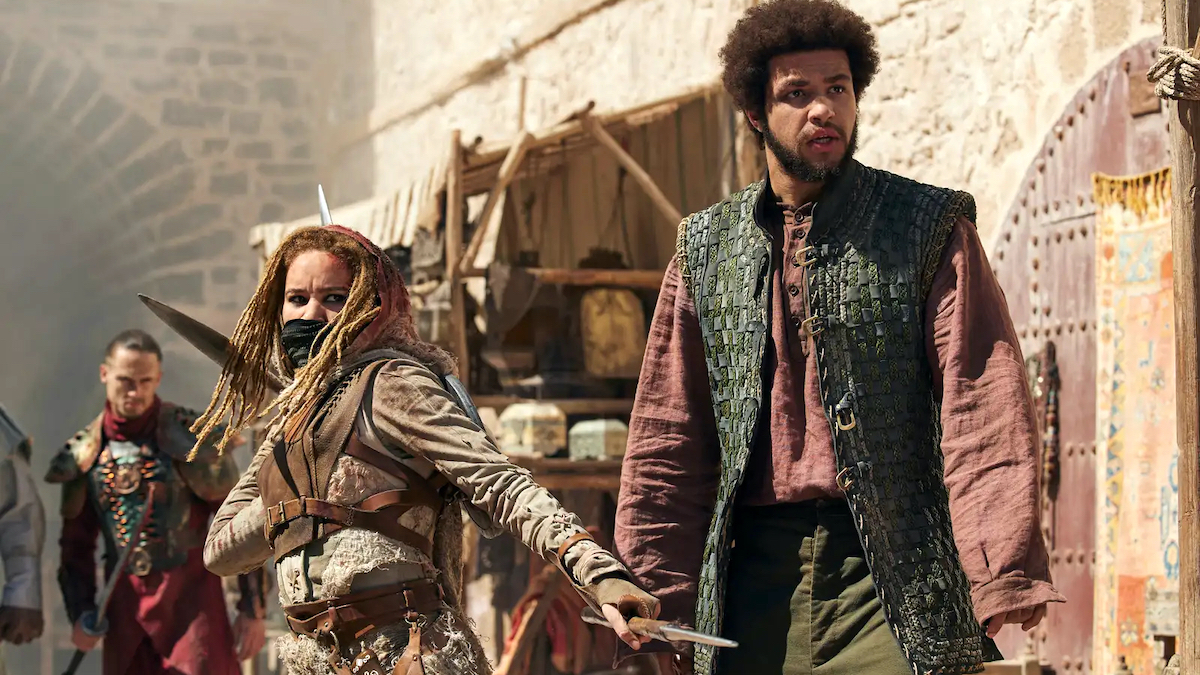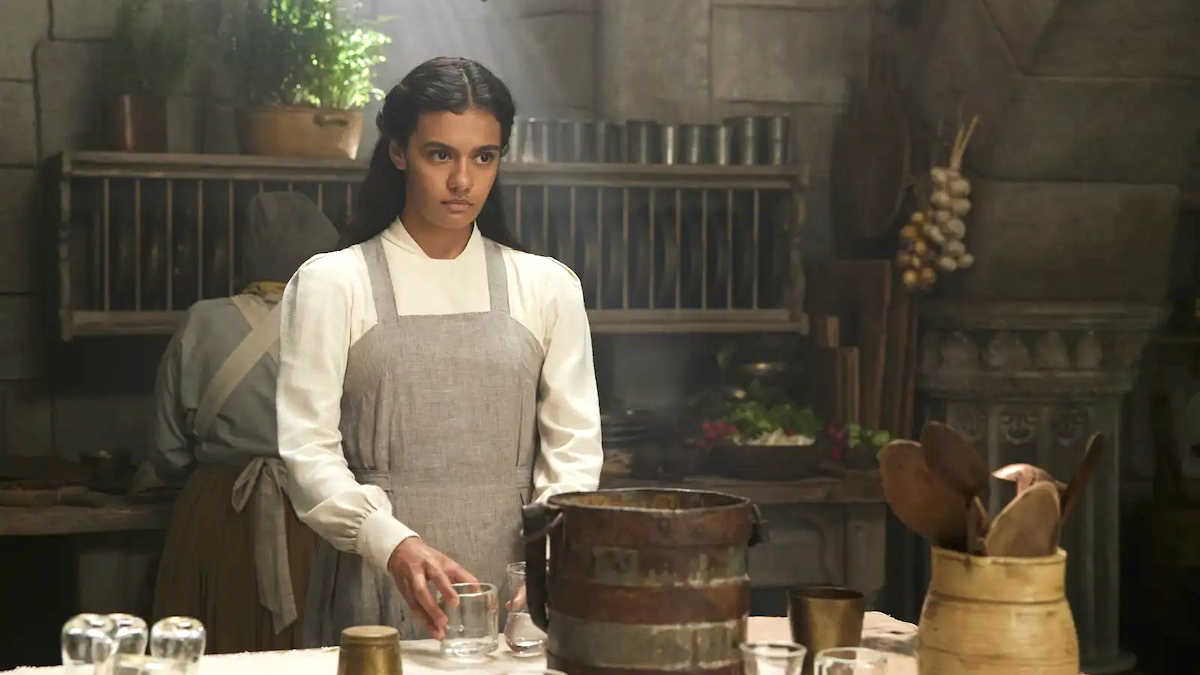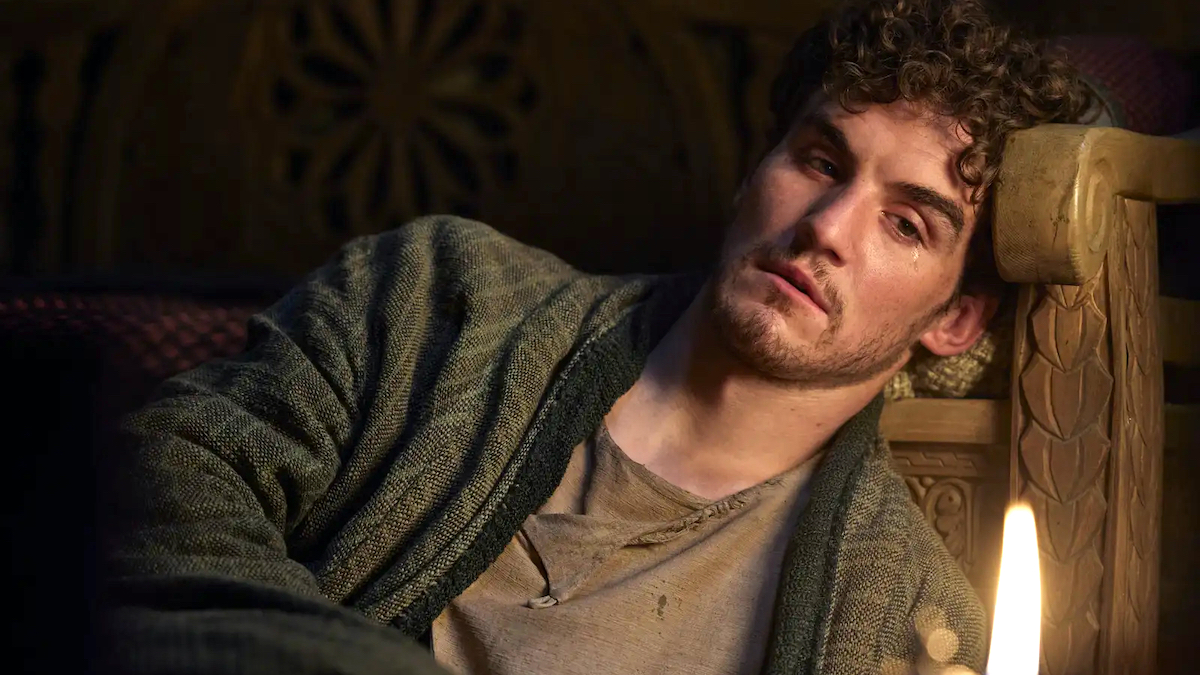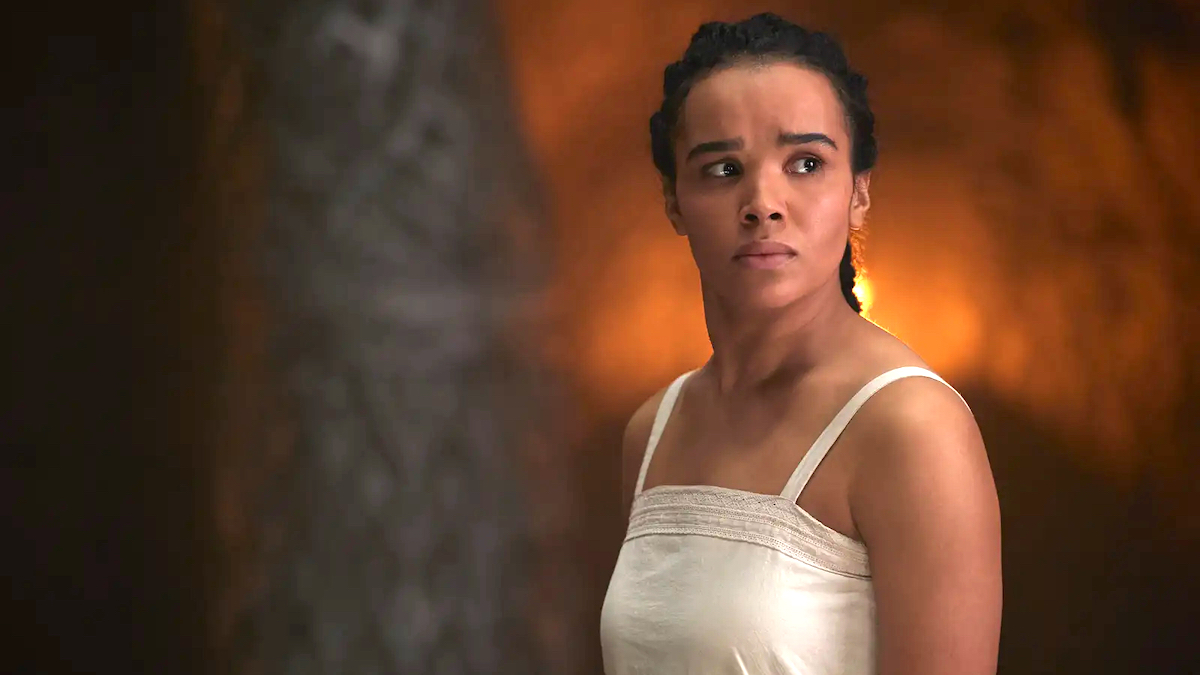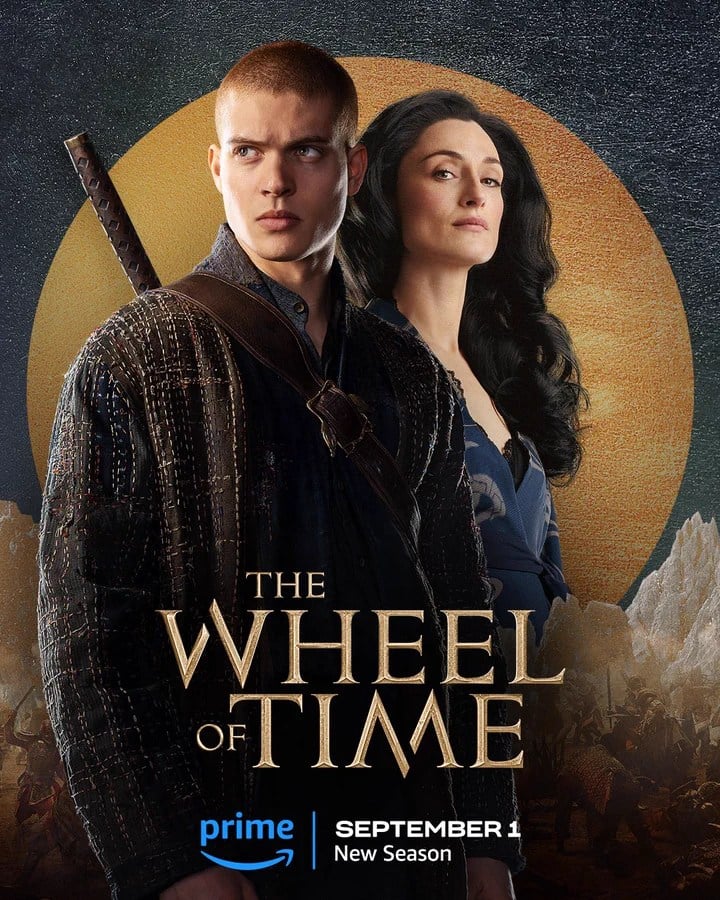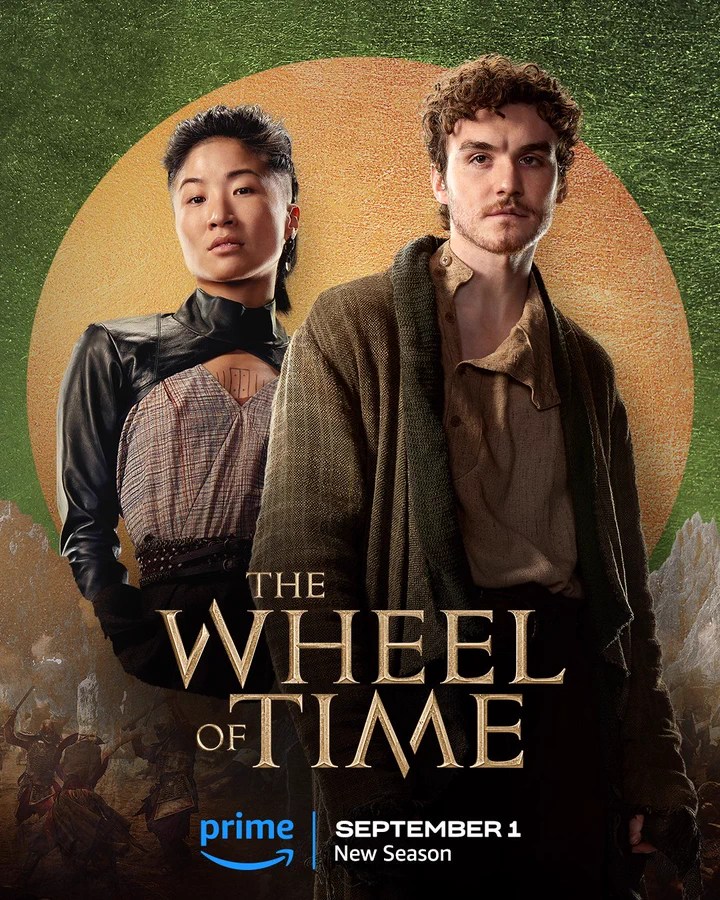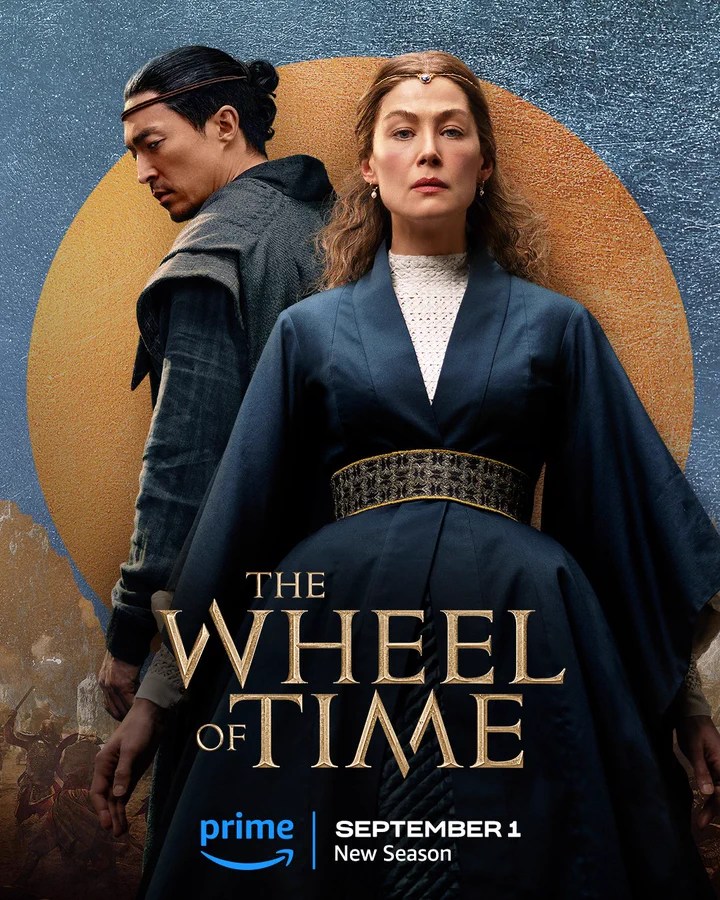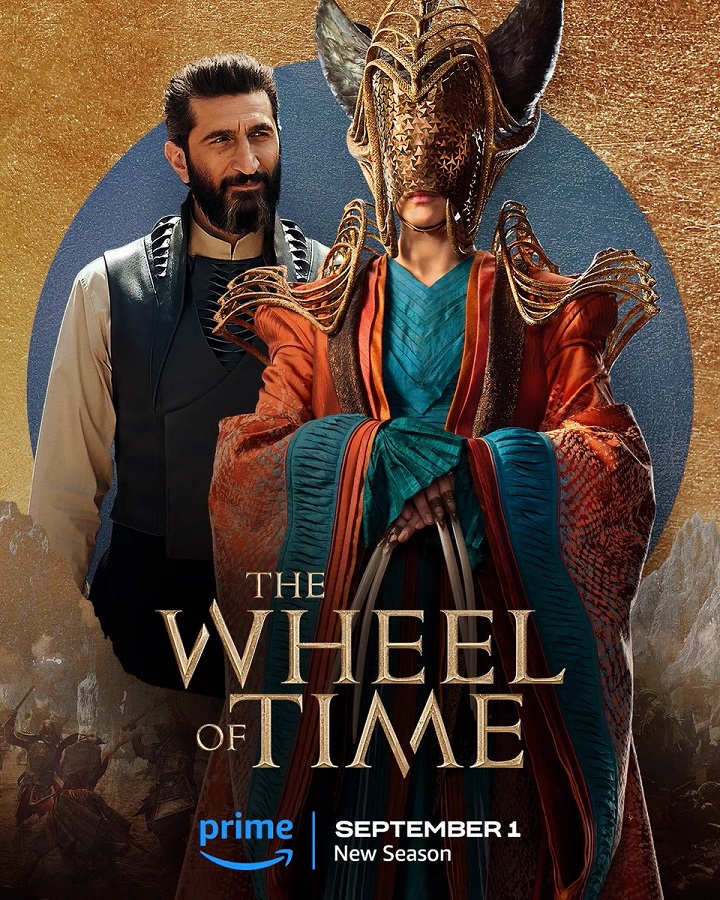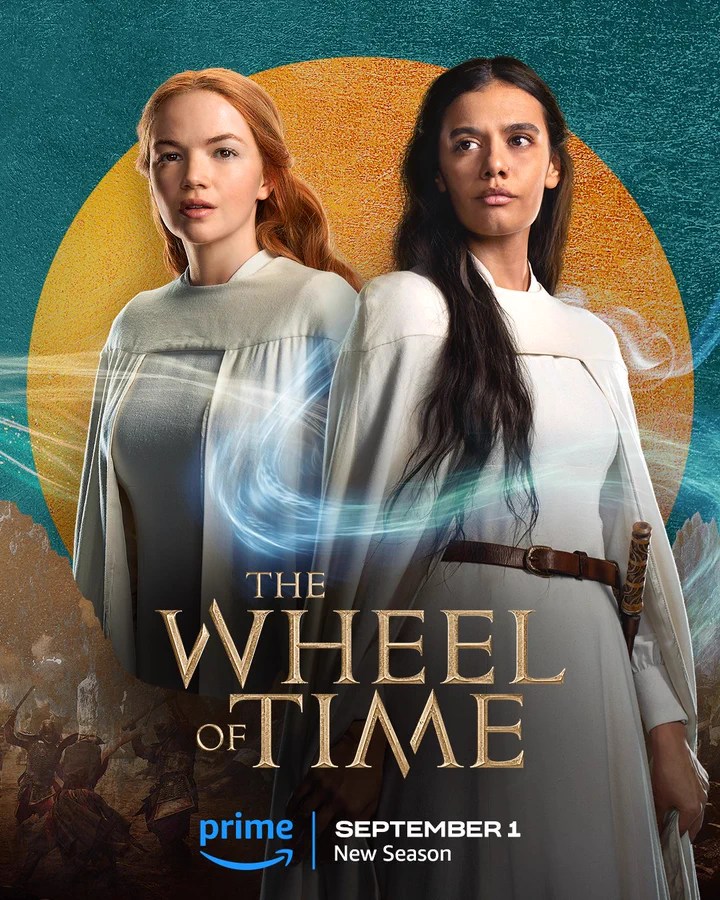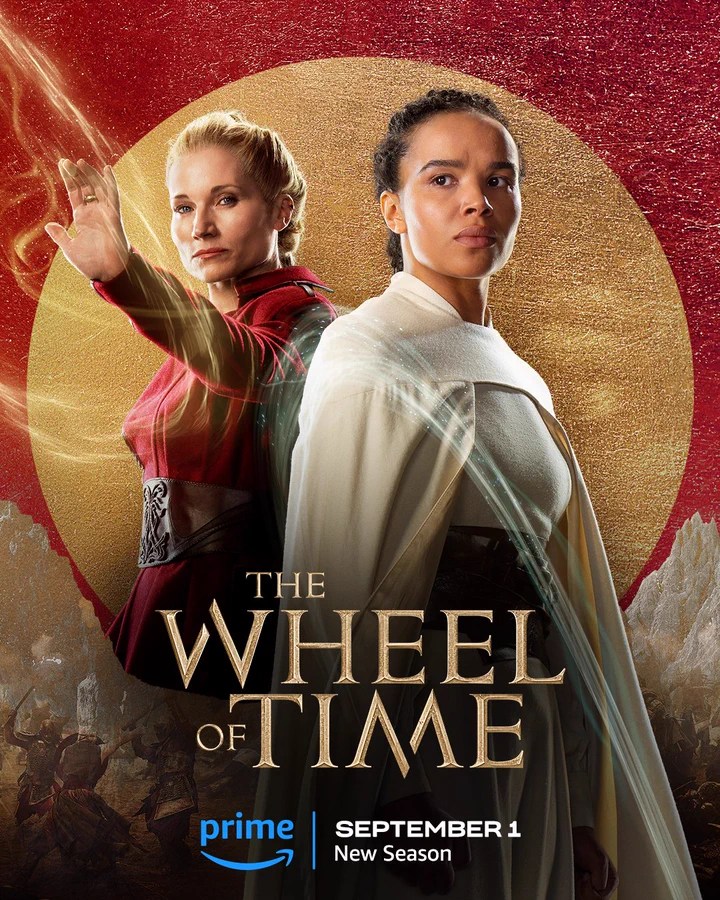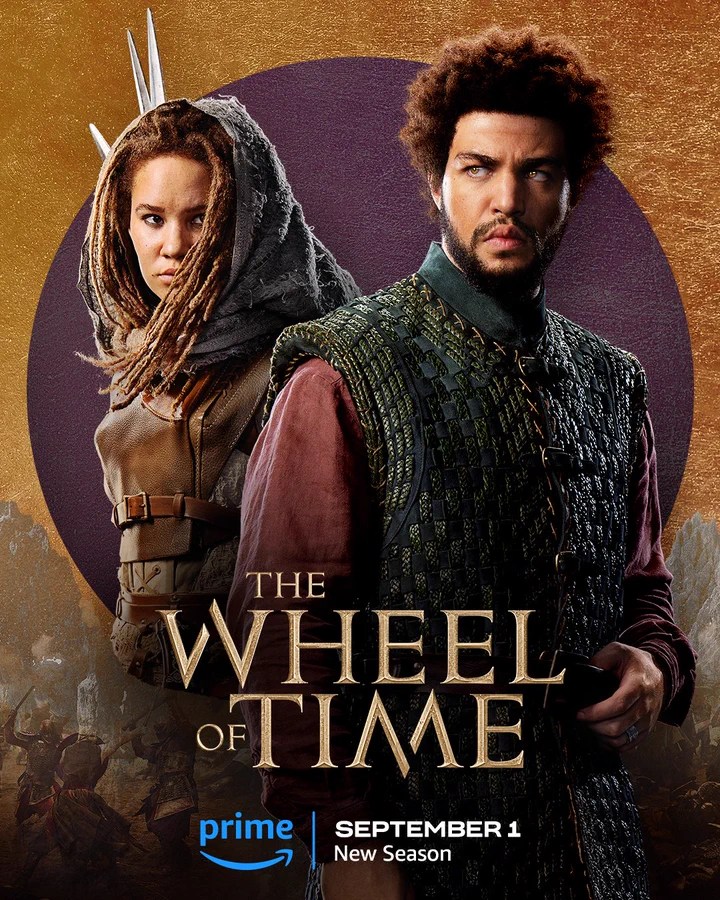The second season of The Wheel of Time is currently streaming on Prime Video after a two-year hiatus, and if, against all odds, this outing manages to find its feet in today’s tumultuous Hollywood, it will stand a genuine chance of turning into the most important live-action adaptation of a fantasy story in the current landscape.
Certainly a bold claim, but bear with me as I try to break down where speculative adaptations stand at the moment. Following the overwhelming success of HBO’s Game of Thrones, there was a surge of mimic television shows that tried to climb over one another to vie for the vacated seat of the most popular fantasy series in the world. What followed, however, was a string of failed debuts that had one thing in common: They either cared little for faithfulness to the source material, or were otherwise so preoccupied with the idea of turning into the next Game of Thrones that they didn’t even try to fully understand what made that series click in the first place.
And so it is that we have middling and divisive outings like Netflix’s The Witcher or Amazon’s The Lord of the Rings: The Rings of Power. One is based on a story that already peaked in another medium, and the other is amusingly attempting to turn a 20-page appendix into five seasons of television. The result should be all too predictable.
You may have noticed another parallel between these shows. Whether it’s The Witcher, The Lord of the Rings or projects as seemingly innocuous as His Dark Materials and Percy Jackson, they’re all based on already-established IP. We’re not talking about the popularity of the book series here. There are a lot of best-sellers out there that don’t even get a second glance from Hollywood, but a franchise that has already made it into the pop culture psyche? To a lot of industry moguls, those prospects are a goldmine that translate into raking in the big bucks. But alas, we’ve yet to see a television series even come close to imitating the Game of Thrones success, both in critical and commercial terms.
You could attribute that defeat to half a dozen reasons, and all of them would be veritable to one degree or another. The problem to broach now is a matter of potential, because even if the brainpower and the production crew on The Wheel of Time can’t necessarily set their work apart from all these other ventures at the moment, there’s something to be said of the story’s originality, or the fact that it has never had a chance to shine in live-action.
Here’s why I think The Wheel of Time could truly turn into the sensation Hollywood has been waiting on, provided that the production team behind it play their cards right.
Why is The Wheel of Time different from all the other adaptations?
When Robert Jordan set out to write a new fantasy saga, one of his main goals was to create a world that could rival J.R.R. Tolkien’s Middle-earth in terms of lore and scale. The Wheel of Time is an ambitious tale that takes 15 books and more than 12,000 pages to unfold, and there in between those pages, between huge character moments and staggering cliffhangers, there are countless nuggets of information that keep building this world around you, immersing you further into the text.
The Wheel of Time is also extremely inclusive in its allusion to other cultures in the real world, and you can trace a hint of every lineage and race out there to a place in Jordan’s mythology. This not only makes it the perfect successor to a fictional world like Westeros, but might just be what the audience is looking for right now.
Hollywood seems to be of the erroneous opinion that the simpler a story and its fictional setting are, the more people are going to sit down and watch it. But when you really think about it, none of the acclaimed adaptations in history, whether it be Peter Jackson’s The Lord of the Rings or HBO’s Game of Thrones, tried to simplify the plot or their ensemble’s respective character arcs. The latter proved that everything goes wrong the moment you try to do that, if anything.
All of this is to say The Wheel of Time has the potential to turn into the next Game of Thrones. In fact, it is more poised to succeed that hit show than its own direct sequel, House of the Dragon, because there’s one key element separating them, and that’s freshness.
There’s still a world of wonder ready to be uncovered in Robert Jordan’s books, but the road ahead is precarious, to say the least. For one thing, the ongoing adaptation needs to double down on its commitment to fully capture the story and not cut down on anything it presumes to be superfluous. Yes, the idea of bringing this behemoth to life on the small screens without any compromises might sound like a logistical nightmare, but that would be true if we were only talking about plot threads.
Showrunner Rafe Judkins and his team can remove chunks of story if it doesn’t end up damaging the spirit of the narrative, but stuff like the world’s hard magic system (something as-of-yet unheard of in live-action) should be depicted in earnest because that’s what makes The Wheel of Time special.
In essence, there is a lot of potential in The Wheel of Time, potential that can easily turn it into your next major fantasy obsession — the book series, having sold 100 million copies, is certainly popular enough for that — but that all depends on whether the show can get this right.
The first season was a bit disappointing in certain areas, and the fact that the COVID-19 pandemic disrupted the crew’s plan for the finale didn’t help matters either. But this second season, which should be available on Prime Video as of today, wasn’t marred by those troublesome developments. In fact, Judkins and co. have had two full years to realize their vision for this next outing — and arguably the show’s most important.
So, here’s hoping there’s something to talk about, a little bit to admire, and a great deal to dissect when the dust has settled on The Wheel of Time season 2 over the course of the next few weeks.

